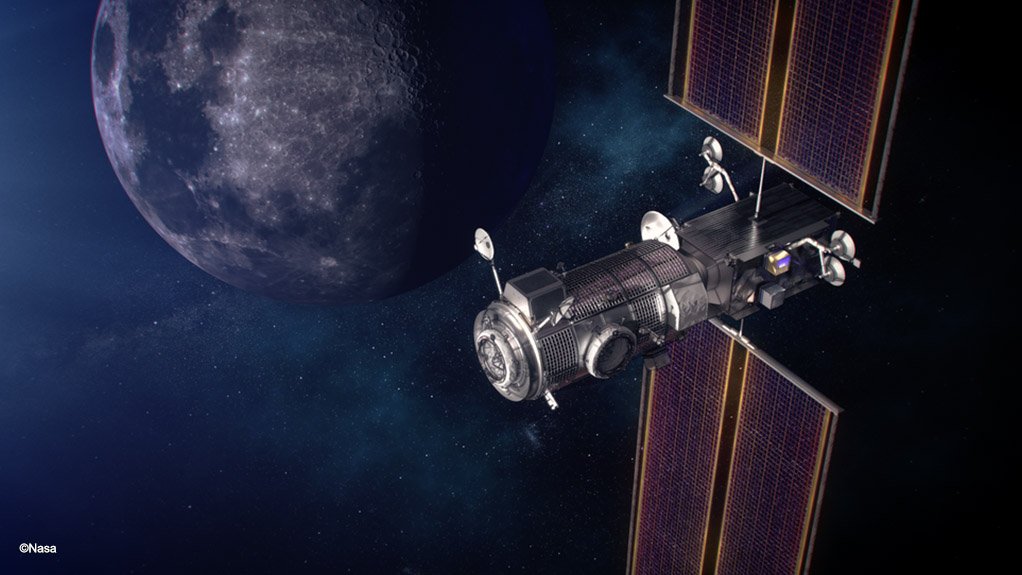The Artemis crewed space programme becomes more international
The US National Aeronautics and Space Administration (Nasa) has signed agreements with seven international partners to support Nasa’s Artemis crewed space programme and to establish a set of practical principles for space exploration cooperation between the signatory countries, which will be taking part in Nasa’s lunar exploration programmes during this century. The agreements are called the Artemis Accords and the signatory organisations, apart from Nasa itself, are the Australian Space Agency, the Canadian Space Agency, the Italian Space Agency, the Japan Aerospace Exploration Agency, the Luxembourg Space Agency, the United Arab Emirates Space Agency and the UK Space Agency.
Other countries would be able to join the Artemis Accords in the coming months and years. The accords were in full alignment with, and reinforced, the 1967 Outer Space Treaty. The principles of the accords were peaceful exploration; transparency (especially in the conduct of operations); interoperability of systems; emergency assistance; membership of (or rapidly joining) the convention regarding the registration of space objects; the public release of scientific data; the preservation of Outer Space heritage; exploiting space resources in compliance with the Outer Space Treaty; the deconfliction of activities (to avoid accidents); and planning to safely dispose of space debris.
“Artemis will be the broadest and most diverse international human space exploration programme in history, and the Artemis Accords are the vehicle that will establish this singular global coalition,” highlighted Nasa Administrator Jim Bridenstine. “With today’s [Tuesday’s] signing, we are uniting with our partners to explore the Moon and are establishing vital principles that will create a safe, peaceful, and prosperous future in space for all of humanity to enjoy.”
The Artemis programme would send the first woman and the next man to the surface of the Moon in 2024. Nasa would naturally be the lead agency, but its international partners would play important roles in the establishment of a sustainable and strong human presence on the Moon by the end of this decade, and in preparing for the first human mission to Mars.
The Artemis programme included the creation of a space station orbiting the Moon, designated Lunar Gateway. This would be assembled from a number of modules before the first crewed Lunar landing mission in 2024.
In an announcement about the signing of the Artemis Accords that was separate from, but parallel to, Nasa’s, the UK government pointed out that it had committed more than £16-million (about $21-million) to the first design phase for the Lunar Gateway’s service and habitation modules. This would ensure that British industry would be involved in the development and manufacture of key components for the programme. (The cost to Nasa of the Artemis programme up to and including its first crewed Moon landing in 2024 – which would be the Artemis III mission – was currently estimated at just under $30-billion).
“The prospect of the first woman landing on the Moon in the coming years will be a source of inspiration for thousands of young people across the UK who may be considering a career in space of science,” enthused British Science Minister Amanda Solloway. “Signing the Accords is a strong signal of our intent to take a leading global role in civil space,” stressed UK Space Agency CEO Graham Turnock. “This exciting step could open up new opportunities for UK companies and scientists to be part of Nasa missions to the Moon and Mars.”
The European Space Agency (ESA), which was not part of the European Union, was already involved in the Artemis programme. ESA would be providing the service module for the Orion spacecraft that would carry the Artemis astronauts to the Moon and beyond. Italy, Luxembourg and the UK were all members of ESA (which has a total of 22 member States), while Canada had a cooperation agreement with ESA which allowed it to participate in some ESA programmes.
Comments
Press Office
Announcements
What's On
Subscribe to improve your user experience...
Option 1 (equivalent of R125 a month):
Receive a weekly copy of Creamer Media's Engineering News & Mining Weekly magazine
(print copy for those in South Africa and e-magazine for those outside of South Africa)
Receive daily email newsletters
Access to full search results
Access archive of magazine back copies
Access to Projects in Progress
Access to ONE Research Report of your choice in PDF format
Option 2 (equivalent of R375 a month):
All benefits from Option 1
PLUS
Access to Creamer Media's Research Channel Africa for ALL Research Reports, in PDF format, on various industrial and mining sectors
including Electricity; Water; Energy Transition; Hydrogen; Roads, Rail and Ports; Coal; Gold; Platinum; Battery Metals; etc.
Already a subscriber?
Forgotten your password?
Receive weekly copy of Creamer Media's Engineering News & Mining Weekly magazine (print copy for those in South Africa and e-magazine for those outside of South Africa)
➕
Recieve daily email newsletters
➕
Access to full search results
➕
Access archive of magazine back copies
➕
Access to Projects in Progress
➕
Access to ONE Research Report of your choice in PDF format
RESEARCH CHANNEL AFRICA
R4500 (equivalent of R375 a month)
SUBSCRIBEAll benefits from Option 1
➕
Access to Creamer Media's Research Channel Africa for ALL Research Reports on various industrial and mining sectors, in PDF format, including on:
Electricity
➕
Water
➕
Energy Transition
➕
Hydrogen
➕
Roads, Rail and Ports
➕
Coal
➕
Gold
➕
Platinum
➕
Battery Metals
➕
etc.
Receive all benefits from Option 1 or Option 2 delivered to numerous people at your company
➕
Multiple User names and Passwords for simultaneous log-ins
➕
Intranet integration access to all in your organisation





















